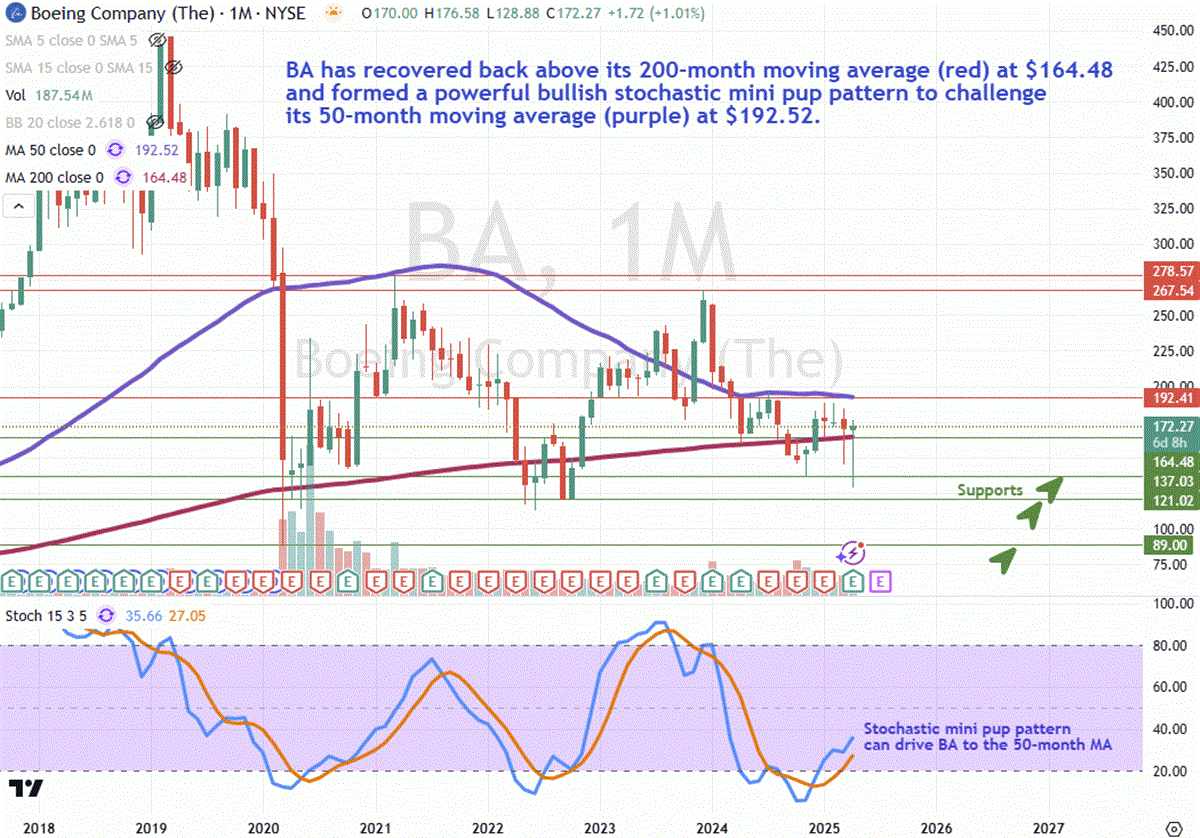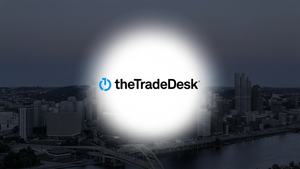
Boeing Co. (NYSE: BA) has been on a journey of redemption since emerging from the International Association of Machinists and Aerospace Workers (IAM) union strike in November 2024, and it’s been gaining traction. The aerospace sector giant has been fending off every obstacle and public relations challenge placed in front of it. Even the trade war-induced Chinese rejection of Boeing airplane deliveries hasn’t slowed its stride.
Its first-quarter 2025 earnings results clearly show that fundamentals are improving as it looks to regain market share against its duopoly counterpart, Airbus SE (OTCMKTS: EADSY). Investors should take a closer look at how quickly operations are ramping up before the stock climbs back over $200.

Boeing Is Flying Smoothly Out of the Gate: Improving by the Quarter
In its first-quarter 2025 earnings report, Boeing posted a non-GAAP earnings per share (EPS) loss of 49 cents, which may seem poor until it's put into the proper context. Boeing beat consensus estimates by 67 cents, a big improvement from the $1.13 loss incurred in the year-ago period, even before the union strike.
Boeing's revenues rose 17.7% year-on-year (YOY) to $19.50 billion, compared to the $19.54 billion consensus estimates.
Operating margin improved to 2.4%, up from 0.5%. Revenue from its Commercial Airplanes segment grew 75% YOY to $8.15 billion.
The Defense, Space & Security Business Fell 9%, But Boeing Secured F-47 Contract
Boeing’s Defense, Space & Security segment saw revenues drop 9% YOY to $6.3 billion. However, operating margins improved by 30 bps to 2.50%, up from 2.20%. The U.S. Air Force selected Boeing to design, construct, and deliver its next-generation fighter aircraft, the F-47.
This order wasn’t included in the backlog since it is pending completion of the source selection and evaluation review process. The segment backlog is $62 billion, but 29% is for international customers.
The Commercial Airplanes Segment Was the Belle of the Ball
Its Commercial Airplanes segment delivered 130 airplanes during the quarter, up from 83 last year, with a backlog of more than 5,600 airplanes worth nearly half a trillion dollars. The segment also booked 221 net orders, including 20 Boeing 777-9 for Korean Air and 20 Boeing 787-8 airplanes for BOC Aviation.
Its 787 program stabilizes at five per month as it expects to reach seven per month in 2025. Its 777X program expanded Federal Aviation Authority (FAA) certification flight testing and expects its first Boeing 777-9 delivery in 2026.
Boeing Wants to Raise Its 737 MAX Production Cap on a Six-Month Basis
Boeing 737 MAX production is in the low 30s per month and improving. Boeing is seeking the Federal Aviation Authority (FAA) to increase its monthly 737 MAX production cap to 42, up from 38. Once approved, the company will continue to seek FAA approval to raise production caps in five airplane increments every six months until reaching 52.
Selling Parts of Its Digital Aviation Solutions Business for $10.55 Billion
Boeing’s cash position continues to stabilize, closing the quarter with $23.7 billion in cash and marketable securities. It plans to sell parts of its Digital Aviation Solutions business to Thomas Bravo for $10.55 billion. This strategic decision will help Boeing focus more on its core business.
Tariffs and Trade Wars: No Significant Impact
[content-module:Forecast|NYSE: BA]Boeing addressed the tariff impacts. The company is not too worried about tariff impacts on input costs since it procures most of its supply chain from the United States. Further mitigation can be performed through duty drawback opportunities and assistance from suppliers.
CEO Kelly Ortberg commented on tariff input costs, “Much of our supply chain is based in the United States, and many of our imports from Canada and Mexico are exempt under the USMCA agreement.
We have suppliers in countries subject to the new U.S. tariffs, most notably in Japan and Italy, where our suppliers do significant structural work on our wide-body airplanes. We are currently paying the 10% tariff on those components, but we should recover tariff costs for those subsequently exported aircraft, which is a large portion of our wide body.”
Many Chinese customers have indicated they would not take delivery due to tariffs and the trade war. Boeing assesses options for remarketing already built and in-process airplanes, around 50 for the year. Boeing is not worried since there is plenty of demand from customers who want near-term deliveries.
Where Should You Invest $1,000 Right Now?
Before you make your next trade, you'll want to hear this.
MarketBeat keeps track of Wall Street's top-rated and best performing research analysts and the stocks they recommend to their clients on a daily basis.
Our team has identified the five stocks that top analysts are quietly whispering to their clients to buy now before the broader market catches on... and none of the big name stocks were on the list.
They believe these five stocks are the five best companies for investors to buy now...






